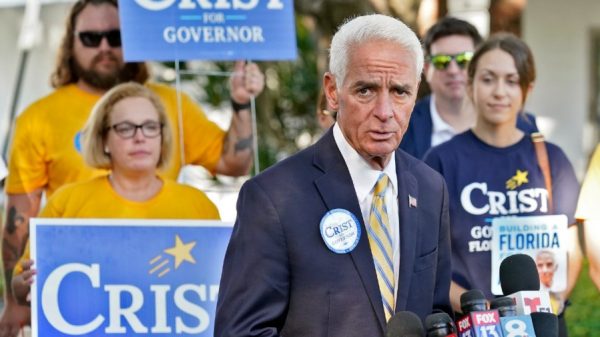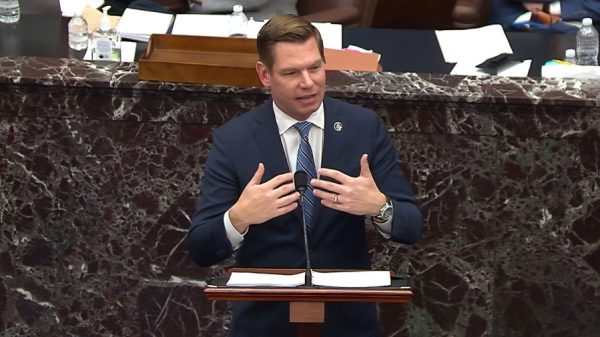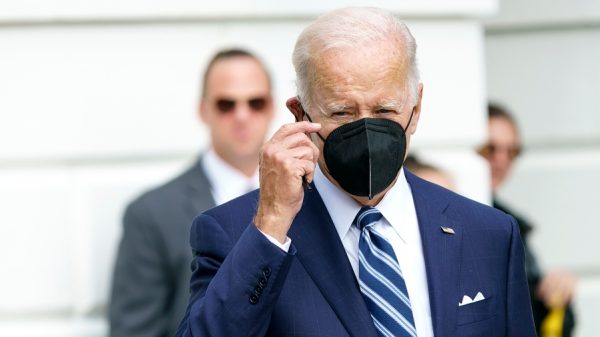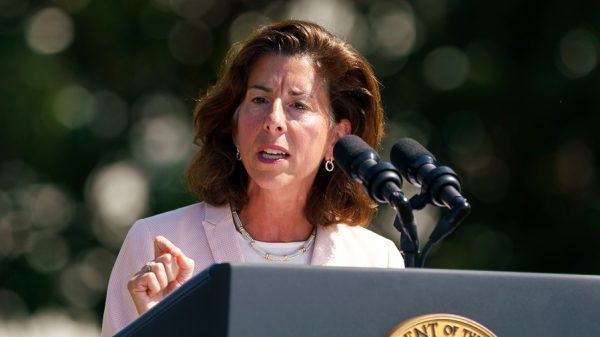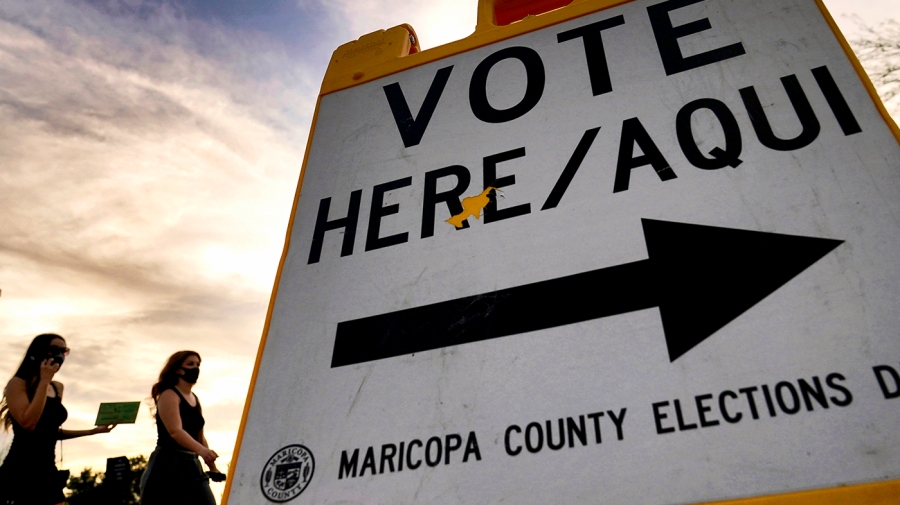Correction: An earlier version misidentified the Republican State Leadership Committee.
Republican enthusiasm about Hispanic voters and candidates tilting their way is extending into targeted activities in down-ballot state races and the battle for control of state legislatures.
The Republican State Leadership Committee (RSLC), which supports down-ballot state legislative and state-level offices, has invested in its first Spanish-language ad and has more than 16 Hispanic candidates in its “Right Leaders Network” recruitment and training program, including in New Mexico, Texas, California, Florida, Oregon and Illinois.
Most recently, it announced working with Texas House Speaker Dade Phelan (R) to fund a $360,000 ad buy to support two of those Republican candidates in Texas: Janie Lopez in the Rio Grande Valley and state Rep. John Lujan in San Antonio.
Lopez, a school board member running for a competitive new state House district, argued that the Democratic party does not align with her community’s values.
“If you go down here in the valley, they are very conservative-oriented in their values. We have our faith in God. We believe in doing what’s right, morally and spiritually. And at the same time, we are tired of the corruption down here. And people are seeing that it’s time for change,” Lopez said.
The efforts add to GOP hopes of boosting the party by making inroads in Hispanic communities, which has been a major focus of national Republicans.
The Republican National Committee has set up 12 Hispanic community centers where staff work to build relationships and outreach in Hispanic communities, and launched a program to help immigrants prepare for their naturalization test. The National Republican Congressional Committee recruited a total of 102 Hispanic candidates in this cycle.
The party is generally bullish about its prospects with Hispanic voters, a group that’s become an increasingly important part of the Democratic coalition.
Republican optimism stems from decades of success pursuing Florida Hispanic voters but also from recent key electoral wins elsewhere, particularly in Texas.
Republicans have been quick to build a steady bench of Hispanic candidates, while Hispanic Democrats had to struggle within their party for years to grow their numbers.
Still, Democrats have historically invested more in pursuing the Latino vote, and they have an overwhelming numerical advantage over Republicans nationally.
“I think it’s a fair criticism — and it’s an absolute fact criticism — in Florida, [Democrats] have taken their foot off the accelerator in terms of investment. The Republicans have outhustled in pure campaign electoral politics the Democrats when it comes to cultivating the Hispanic vote,” said Fernand Amandi, a Democratic pollster who specializes in surveying multiethnic and multilingual groups.
“But what the Democrats have is the better story, their narrative and, in this case, the ideological headwinds caused by a series of issues abortion extreme Republican candidates and the specter of return to Trump,” added Amandi.
The RSLC’s candidates are largely staying focused on kitchen table issues, and Republicans hope their outreach efforts will help them make inroads with Hispanic voters.
“For too long Democrats have taken Hispanic communities for granted and now these voters are looking for an alternative to the Democrats’ disastrous agenda that has given them rampant crime, skyrocketing inflation, a lack of control over their children’s education, and a disastrous border crisis,” RSLC spokeswoman Stephanie Rivera said in a statement, pumping up the organization’s “multi-pronged approach” of messaging campaigns, targeted spending and support for Hispanic candidates.
Republicans have control of more state legislative seats and bodies than Democrats and have some pickup opportunities in states such as Nevada and Maine, a University of Virginia Center for Politics analysis found. Where Republicans already have control, they are hoping to expand their influence in states such as Texas. And elsewhere, they are aiming to thin Democrats’ majority.
California state Assemblywoman Suzette Valladares, a Republican running in a Santa Clarita-area district where there are more registered Democrats than Republicans, said that voters in her district are willing to vote for the GOP if candidates talk about issues that matter to them.
“For a long time, you know, the policies aimed at engaging Latinos were all policies that only focused on the issues for underserved, poor Latinos. And, mind you, there’s still a lot that needs to be done in that area. But the issues that are now impacting Latinos in the middle class are the same issues that are impacting the rest of California,” Valladares said. “Affordability, homelessness, crime — these issues are so vital.”
Cost of living and well-paying jobs are major concerns in Lopez’s district, she said, adding that she is advocating to make technical training programs more accessible in her community.
The RSLC Spanish-language ad released last month highlighted the cost of living. It was backed by a five-figure air and digital buy and played in RSLC-targeted states such as Arizona, Colorado, Florida, Nevada and Texas.
For Nicole Chavez, a New Mexico House candidate seeking to flip an Albuquerque district red, said that high crime is a major motivator and the reason she switched from being a lifelong Democrat to a Republican.
Chavez’s son was killed seven years ago in a drive-by shooting eight minutes after he arrived at a house party. In the aftermath, she started a nonprofit for homicide victims and started advocating for stronger penalties for criminals, but Democrats did not support her bills.
“It was an eye-opening event. Let’s just say that,” Chavez said. “I hate to say that, but I call it generational ignorance, being a lifelong Democrat, with the families because people don’t educate themselves on what their legislators actually believe in, what bills that they fail, what do they stand for? They just identify with ‘If I’m a Hispanic, then I should be a Democrat.’”
Chavez, Lopez and Valladares said that through the RSLC’s Right Leaders program, they have gotten not only financial assistance but also training it provides and access to a network of state Republicans across the country.
They also said that it is also important for voters to see Hispanic and Latino Republican candidates.
“When I’m meeting people out in the community or door to door, they’re saying, ‘Oh, wow. You’re Hispanic, and you’re a Republican too. I’m so glad to see that there’s more people like you,’” Chavez said.
“If you can see it, you can do it a little easier,” Valladares said.
–Updated at 8:35 a.m.












